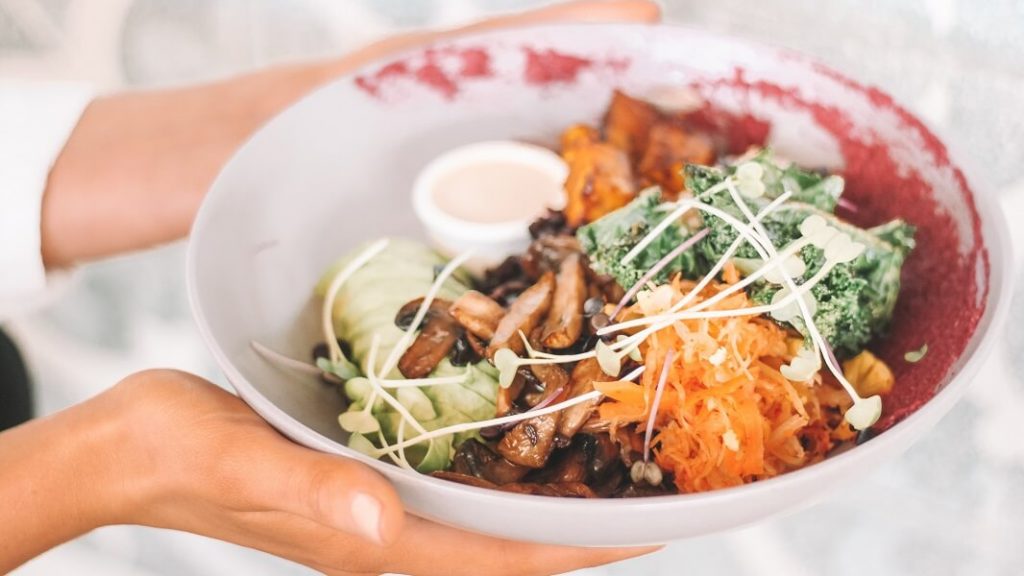“How do you have time to discuss nutrition with your patients?” This is one of the most common questions I receive as a physician who advocates for plant-based nutrition – and I think it is an important one.
Isn’t it interesting that as physicians, we are constantly managing our patient’s chronic diseases, adjusting medications at every patient visit, and the majority of physicians do not address nutrition with their patients, ever? Nutrition and lifestyle choices often are the foundation of these chronic disease.
As a cardiology fellow, I created a plant-based preventative cardiology clinic. I have been blessed to watch patients transform their lives every single day. Over the last year in my, clinic I’ve seen patients lose 50, 100, 200 pounds. I’ve seen them reverse their diabetes, their hypertension, their sleep apnea, their heart disease. I’ve seen them find purpose and joy in living again.
So, here are a few tips for healthcare practitioners looking to add plant-based nutrition into their scope of practice.
5 Ways Doctors Can Help Patients Heal With Vegan Food
1. Check Yourself

This is the most important step. Check your preconceived notions, your predetermined judgement, for which you may determine which patients “would never even consider” a vegan diet.
So many physicians do not give patients enough credit for their desire to change. Patients will surprise you. Many patients will take the leap, if provided the right information and support. Give all patients the option. You don’t need to force the issue, but you can present the health benefits from a place of compassion and understanding.
2. Recognize Your Patient’s Needs and Challenges

Just like when we counsel patients to quit smoking, not everyone is ready to change. Approach the topic of vegan nutrition with your patient, but don’t force it. As a physician, you and your patients have a partnership, and you will have other follow-up appointments to discuss nutrition. If they don’t seem ready to change, plant the seed by providing resources and revisit it at another time.
Listening to your patient’s concerns is important. Some don’t know what to eat. There may be cultural barriers to giving up meat and dairy. Family dynamics might prevent them from going plant-based. Budget is often another concern.
Hear them out and be there to provide solutions: resources, guides, and support. Remember: your patients do not need to be wealthy to go vegan. They don’t need to be young. They don’t need to be chefs. They just need to be motivated, with your help. Plant-based nutrition is for everyone, of every culture, every income, and every age.
3. Save Time By Being Efficient

Time is always an issue in healthcare. I am a cardiology fellow, I get it. You have 10-15 minutes for a follow up visit which includes a physical exam, reviewing their medications, acute medical issues, and we are always expecting the unexpected.
Rome wasn’t built in a day. You don’t need to transform your patients in every 15-minute follow-up visit (but some days, you will). I have created smart phrases in my hospitals electronic health record (we use Epic), and this has saved me endless time.
In each patient after visit summary, one quick smart phrase sends my patient home with resources such as Forks Over Knives, PCRM, and nutritionfacts.org. My own website has a free plant-based transition guide. Refer them to a vegan dietitian, if you have this available to you in your area. There are even conferences just for doctors interested in learning more, such as the seventh annual PCRM International Conference on Nutrition in Medicine this July.
4. Be Their Cheerleader

Patients will have to do some heavy lifting on their own, and this is a good thing! They will have to look up recipes, try new food, and change lifelong habits. Support them. Make sure to have compassion and let them know it’s okay to struggle. Celebrate their successes. Whether my patients lose 10lbs or get off all their medications, I have a giant smile and give them a huge hug. Believe in them and believe in yourself – you can truly make a difference as their doctor.
5. Every Encounter Can Be Life-Changing

When caring for critically ill patients, there isn’t always the opportunity to talk about the link between prevention and nutrition. Patients may be sedated or unstable. But last week, a patient who was sick but stable asked about their diagnosis while I explained their treatment plan.
They asked, “Will I have to be on these medications forever?” For a moment I wanted to say, yes, in light of their disease. I wanted to say yes, because I wanted them to understand how sick they were, and that these medications were keeping them alive. I wanted to say yes, because I knew I had 10 more critically ill patients to see. But I looked at the patient and their spouse and said, “I know we are in the ICU right now, but when you get out, you can potentially reverse these diseases through a whole food, plant-based diet.”
I fully expected them to think I was nuts, but instead, they cried. They said they would do anything to get healthy and have a second chance. They wanted to know how they could change their habits. Are all diseases reversible with vegan nutrition? Of course not. But can plant-based nutrition support patients through almost all disease processes? Yes. Everyone deserves to have vegan nutrition incorporated in their treatment.
As healthcare providers, we often don’t give enough of our patients the option for optimal health. We spend time managing disease, instead of preventing it, reversing it, or fixing the underlying problem. To discuss this with this patient took five minutes. We gave them resources and set them up to see me as an outpatient This reminded me that every single encounter, not just in the outpatient setting, is an opportunity to change a life.



